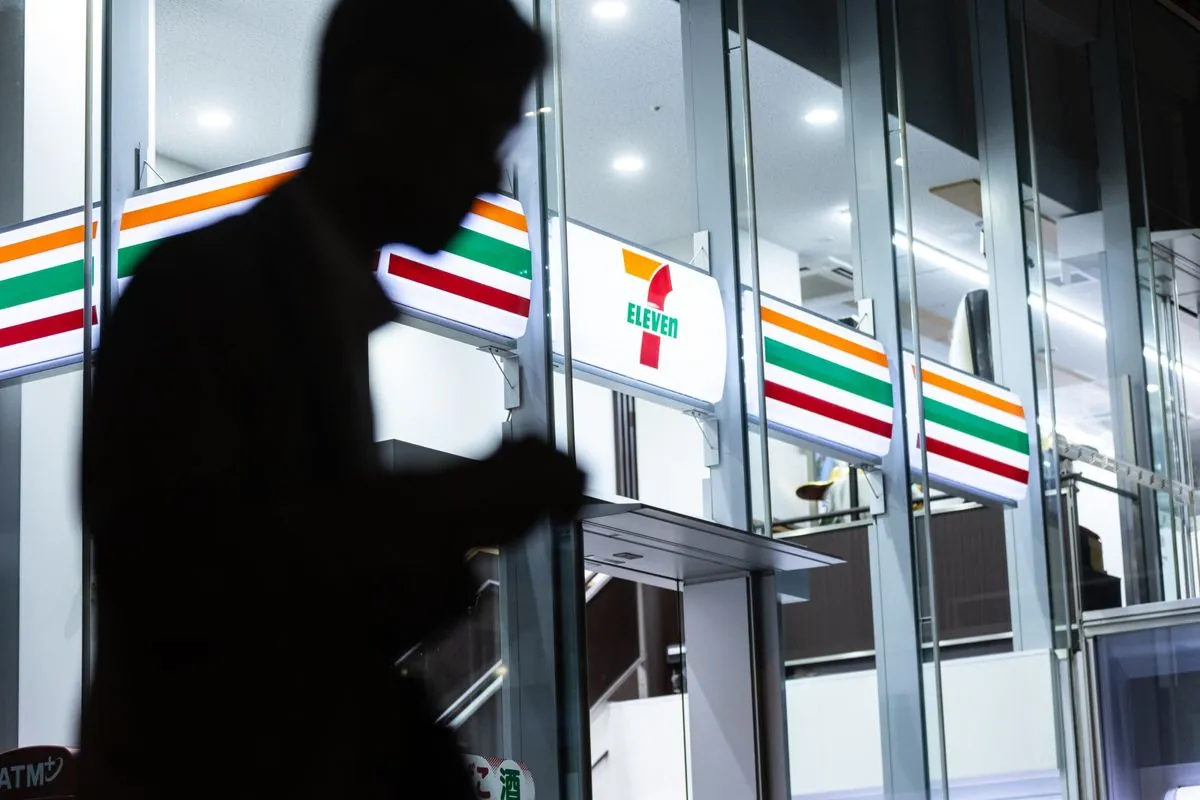Seven & i's Bid for Protection Challenges Japan's Corporate Reform Agenda
Japanese retail giant Seven & i seeks government shield after takeover offer, potentially undermining economic reform efforts. Move raises questions about fair value creation and foreign investment in Japan's evolving corporate landscape.

In a move that appears to contradict Japan's ongoing efforts to revitalize its economy, Seven & i Holdings, the $38 billion operator of 7-Eleven convenience stores, is seeking enhanced government protection following a preliminary takeover offer from Canadian firm Alimentation Couche-Tard. This development, occurring just one year ago, has raised concerns about the progress of corporate reforms in Japan and the country's commitment to attracting foreign investment.
Seven & i's request for "core" status under Japan's Foreign Exchange and Foreign Trade Act would require any entity acquiring more than 10% of the company to notify the government in advance. This effectively prevents sudden, large-scale share acquisitions, commonly known as dawn raids. The timing of this request, coming shortly after Couche-Tard's offer, has sparked debate about the fairness of such protective measures.
Japan's foreign investment regime aims to provide predictability for potential buyers. However, granting special status to Seven & i at this juncture could potentially deter bidders and undermine the value-creation process for a company that has been underperforming. It's worth noting that Seven & i, founded in 1920, has grown to operate over 77,000 stores across 19 countries as of 2023, highlighting its significant global presence.

The Japanese government faces a delicate balancing act. On one hand, it must protect sensitive industries and technologies. On the other, it needs to promote economic growth and shareholder returns. This dilemma is particularly relevant given Japan's history of economic stagnation, especially during the "Lost Decades" of the 1990s and 2000s.
"Seven & i wants the Japanese government to require prior notification of any purchase of its shares above 10%"
Interestingly, some Japanese companies have been moving in the opposite direction, shedding various M&A defenses. This trend aligns with the broader corporate governance reforms implemented since 2013 to attract foreign investment. The Tokyo Stock Exchange's major restructuring in April 2022 further underscores these efforts to improve corporate value.
The market has responded positively to the potential for change at Seven & i. The company's shares saw an 18% increase following Couche-Tard's approach, indicating investor appetite for potential reforms or new ownership. This reaction suggests that the market views the possibility of a takeover or significant changes positively.
As the situation unfolds, many industry observers argue that the best course for the Japanese government would be to maintain a neutral stance, allowing for a fair process to play out. This approach would align with the broader goals of economic reform and could potentially attract more foreign investment to Japan's evolving corporate landscape.
In the context of Japan's ongoing economic reforms, the Seven & i case serves as a critical test of the country's commitment to open markets and fair competition. As the government navigates this complex situation, its decisions will likely have far-reaching implications for Japan's business environment and its appeal to global investors.


































